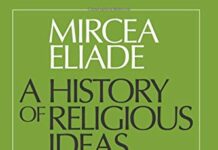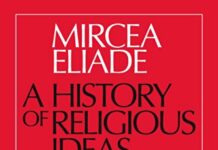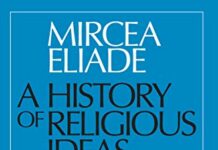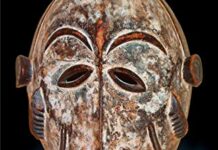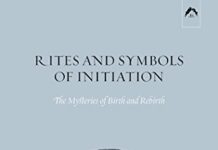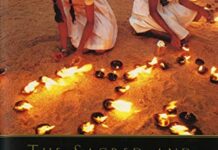
Ebook Info
- Published: 2008
- Number of pages: 140 pages
- Format: PDF
- File Size: 0.79 MB
- Authors: Mircea Eliade
Description
Bucharest, 1938: while Hitler gains power in Germany, the Romanian police start arresting students they suspect of belonging to the Iron Guard. Meanwhile, a man who has spent his life studying languages, poetry, and history—a man who thought his life was over—lies in a hospital bed, inexplicably alive and miraculously healthy, trying to figure out how to conceal his identity.At the intersection of the natural and supernatural, myth and history, dream and science, lies Mircea Eliade’s novella. Now in its first paperback edition, the psychological thriller features Dominic Matei, an elderly academic who experiences a cataclysmic event that allows him to live a new life with startling intellectual capacity. Sought by the Nazis for their medical experiments on the potentially life-prolonging power of electric shocks, Matei is helped to flee through Romania, Switzerland, Malta and India. Newly endowed with prodigious powers of memory and comprehension, he finds himself face to face with the glory and terror of the supernatural. In this surreal, philosophy-driven fantasy, Eliade tests the boundaries of literary genre as well as the reader’s imagination.Suspenseful, witty, and poignant, Youth Without Youth illuminates Eliade’s longing for past loves and new texts, his erotic imagination, and his love of a thrilling mystery. It was adapted for the screen in 2007 as Francis Ford Coppola’s first feature film in over ten years. “A wonderful blend of realism, surrealism, and fantasy, [Eliade’s novellas] suggest the importance of the mythic and the supernatural to finding meaning in the everyday. Highly recommended.” —Library Journal “Youth Without Youth reads like a surreal collaboration by Jorge Luis Borges, Kurt Vonnegut, Jr., and Carl Jung. Mircea Eliade left me with the rare sense that I had been entertained by a genius.”—William Allen, author of Starkweather and The Fire in the Birdbath and Other Disturbances
User’s Reviews
Reviews from Amazon users which were colected at the time this book was published on the website:
⭐This is a very off-beat novella written by one of our greatest experts on the topic of religion. I can’t say I really enjoyed it in a literary sense, but I have to say it was provocative enough to hold my attention and consider a second reading!This book attempts to meld eastern mysticism with western science and poses many questions which go unanswered. Yet all of the philosophical attributes are infused with early second world war history, Nazi scientists, hidden documents, intrigue with a beautiful spy for the Gestapo, miraculous recoveries and ancient languages. Reincarnation is also involved, which supplies enough romance to make the story a story rather than a vehicle for the writer’s own philosophy.The protagonist, Dominic Matei, is a former language professor who experiences what is referred to as the “rejuvenation by electricity” as a very old man and becomes young again just as he is on his way out of his home country, Romania. The reasons for his decision to leave turn out to be tragic, then fortuitous and ultimately, sensational. Years after his experience, he falls in love with a young woman who reminds him of an earlier love and who, after having been struck by lightning, is able to speak in ancient but heretofore unknown foreign tongues. This thrust into ancient times even before the Buddha, comes towards the end of the book – certainly within the last one third and well after we’ve seen the results of our hero’s own transformation.There is much rich philosophical material here, that I admittedly need to do some additional research as to content – first, on the philosophy of Chantrakirti, next, the Butterfly Dream as presented by Chunang Tzu and then, the philosophy of Nietzsche, whose theories apparently coincide with the ancient Chunang Tzu. The “double” is introduced in the book as well (I call it the “doppleganger”), as is reincarnation, a theory I’m extremely comfortable with. At last, I would like to read more of Mircea Eliade’s own work including “The Sacred and the Profane,” “Shamanism,” and “The History of Religious Ideas.”So, my three and a half stars is directed towards the literary merit of the story which I found unnecessarily difficult to follow, and four stars for the challenge in the material which, I have to admit, I find irresistible in any writing.I may change my review upon the second reading.
⭐I purchased the novel “Youth Without Youth” because I was already familiar with the nonfiction books by the author Mircea Eliade on the history of religions and languages. Because of the erudition of his nonfiction books, I was curious how the author would approach the writing of a novel. I was not disappointed. The plot of the novel is unusual and not one I would have thought of myself. It involves the story of an aged scholar of languages who is one day struck by lightning, which causes him to pass out for a few days, but which also causes him to awake as a young man who not only has renewed youth but who also has unheard of powers of mind, such that he is able to learn foreign languages (even ancient dead languages) by merely willing himself to know the languages. He can also learn history and the sciences in the same way. The character uses his new powers to research certain problems which have always eluded his efforts to solve–such as the origin of human languages and the relationship between the waking state and the dream state in the human mind. I got the feeling that the author wrote the story of a man who had experiences which the author himself wishes he could have–i.e., a man who had unlimited time and unlimited abilities to learn foreign languages and the sciences with hardly any effort at all. The book is very interesting and has helped me to understand the author. I would recommend this book, and all of Micea Eliade’s other books, to anyone who is trying to understand the origins of human language and human religion. In my view, the reader will always learn something from Mr. Eliade’s books, and will not be disappointed.
⭐There are lots of novels out there that attempt to be something profound, that try and create something meaningful and complete. Some of these novels succeed and yet many fail miserably. I don’t really know where `Youth Without Youth’ falls for I’m still trying to figure out just what exactly it was trying to be `profound’ about.The problem I have with `Youth Without Youth’ is that upon closing the book I felt very unfulfilled, as if I had no real idea of what I was supposed to have been enlightened on. In the forward, written by Academy Award winning director Francis Ford Coppola (who just so happens to direct the movie adaptation of this novella), we are told that when making a movie sometimes it is best to make a movie about a subject you don’t understand or base it on a question you don’t know the answer to. Coppola says that in the process of making the movie you come to find the answer.I guess maybe I need to see the movie.Mircea Eliade’s novella `Youth Without Youth’ takes place in pre-World War II times and follows the strange journey of Dominic Matei, an aging man who is given a chance to relive his life so-to-speak when a lightening bolt strikes him, rejuvenating his body and giving him `power beyond what is normal’. Dominic is an interesting man, steeped heavily in philosophy and religion and language, and when he is made young again his memory and ability to grasp and ascertain is strengthened. This makes him the prime candidate for study and experimentation by the Nazi’s.I won’t really get too far into the bulk of the story; it’s kind of all over the place anyway. It leaves a lot of questions left unanswered in the end, questions that leave me furious since I was expecting something grand in closing to tie everything together. Eliade make’s mention within this novella of time being an ambiguous thing, and so maybe the point of this novella was to elicit conversation and further research into the wonderment that is `time’, but I don’t feel compelled to do that. I feel like I wasted my `time’ in attempting to enjoy something that is rather confusing and bland.There was so much that could have been done here. Maybe the whole `novella’ thing was a bad idea; maybe if only the story had been longer then it could have truly been fleshed out. The story wants to be all things and encompass so much that it never gives enough attention to anything long enough to make it remotely understandable and or interesting.I still long to see the film, if only to see Coppola’s return to the directors seat after being absent for too long (ten years is a long time to be out of pocket). I hope that Coppola was able to bring some sense to this story; for I’m certain that underneath it all there is a great story, a great prose and I’m almost positive there is a great `theory’, I just couldn’t find it.
⭐A good tale of remarkable effects rippling through a life in the most unexpected ways. It has a surreal quality to it and adequately captures the war time fear of the early 40s.
⭐Absolute brilliant. One of the most engaging books I have read in a long time.
⭐Great time and quality. Thank you!
⭐Il s’agit du premier livre de Mircea Eliade que j’ai lu. Bien différent du film; ce livre est une histoire gnostique. J’ignore si Eliade en avait conscience au moment de l’écriture, mais nous sommes bel et bien en pleine gnose ou le temps n’est plus qu’un.落雷に当たってなぜか若返ってしまった男の話。高名な学者でもある著者は事前にプロットを設定せず書きながらストーリーを考えるそうだが、実際の作品もそういう感じ。悪く言えば、とりとめがない。よく言えば商業主義から自由な新鮮さがある。淡々とした文体だが、不思議な生々しさもあり再読を誘う。
⭐
Keywords
Free Download Youth Without Youth in PDF format
Youth Without Youth PDF Free Download
Download Youth Without Youth 2008 PDF Free
Youth Without Youth 2008 PDF Free Download
Download Youth Without Youth PDF
Free Download Ebook Youth Without Youth
